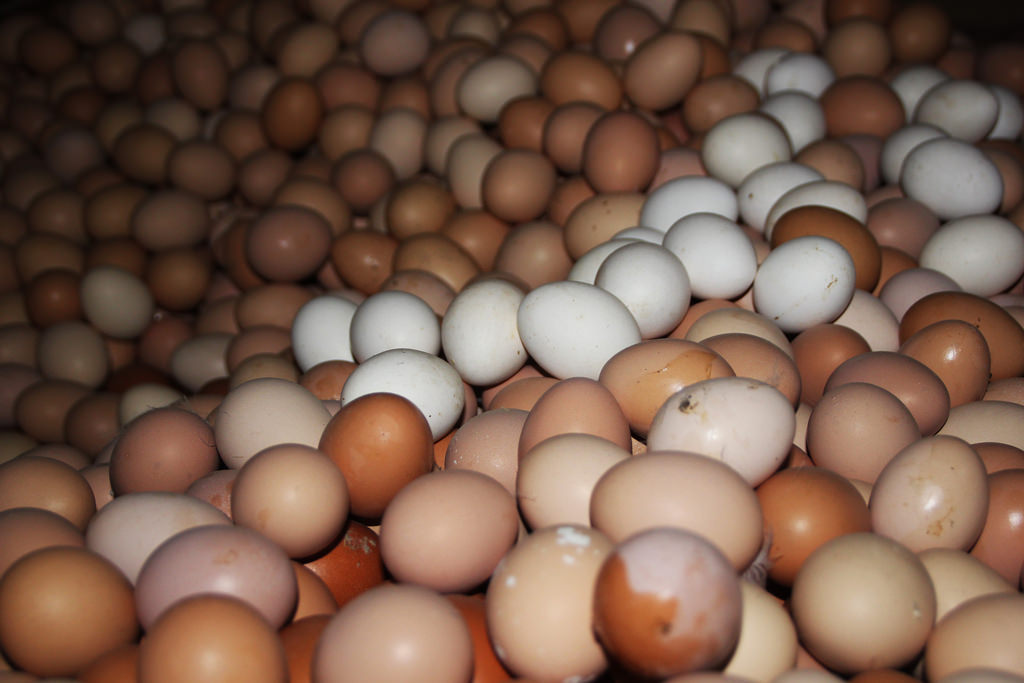“Free-wheeling on free range eggs not a way to develop national food standards”
August 2Despite the burgeoning popularity of so-called ‘free range’ eggs in her country, Ashley Foster-Estwick, 26, a Commonwealth Correspondent from Barbados, writes that lawmakers need to take action to ensure that standards and regulations are in place that put the health of citizens first.
Lately, I have been thinking a lot about chicken eggs.
Part of the reason I’m doing this is because I consume (at least) one each day. Also, life in the tropics guarantees that during my daily commute I will come across stray chickens roaming around island. It’s an amusing characteristic of local life that many visitors to Barbados find amusing.
These so-called ‘stray’ chickens roam freely into the backyards of local residents. In fact, many often end up becoming pets – known affectionately as ‘yard fowl’.
It is safe to say the chicken commands respect around here. But measuring this respect through a consumer lens, particularly as it relates to the modern food industry, provokes many questions that need attention.
The lack of a domestic ‘grading system’ for the quality of eggs often times puts purchasers in the dark without even knowing it. What should consumers make of the fact that supermarkets have begun selling ‘free range’ eggs without actually certifying that they are ‘free range’ or not? Moreover, how does my country’s pervasive yard fowl population impact what eggs ultimately get stocked on grocery shelves?
In Barbados, large-scale producers provide most eggs to locals. Naturally, of course, there are exceptions, where people choose to purchase eggs from small farmers at market stalls, house doors or parked vans for economic or personal reasons. Purchasers are likely to tout their ‘free range’ eggs as being more nutritional, but they are often more than double the price than the eggs sold by small farmers. To me, that highlights the reasons why the complexity of consumption patterns should never be underestimated. Familiarity with brands and the influence of peers, for example, can all have an impact on purchasing behaviour. That’s why I believe the rising popularity of ‘free range’ eggs in Barbados in largely due to marketing and peer pressure, since no fact on overarching health benefits have, to date, been publicised.
Even more simply, the lack of a definition of what ‘free range’ means belies consumers to conduct their own independent investigations.Standards by which ‘free range’ eggs can be measured are as such the flock size, indoor stocking density, outdoor range size, the use of genetically modified products, antibiotic use and beak trimming. Yet because there is no global, legal definition for the term ‘free range’, ‘free range’ eggs may look different from the North of America to Australia. Barbados to my knowledge has no definition for free range nor has any agricultural publication which includes measurements for ‘free range’ eggs.
For a country lacking in its own basic standards for egg production, labeling and grading is critical. Indeed, surely before we begin to mirror other countries and promote the free range, I think it’s essential that our government develops our own national standards first.
Photo credit: International Livestock Research Institute via photopin (license)
…………………………………………………………………………………………………………………
About me: I was born and raised on the island of Barbados. While writing has always been an outlet for my creative ideas or thoughts, I never fully pursued it as a career. Instead I have studied business, languages and politics.
I work in administration and management sectors, hoping to use these skills to cross over into the management of public health. My hope is to use this platform as a way to stimulate conversation with my peers and reenergise my writing.
…………………………………………………………………………………………………………………
Opinions expressed in this article are those of the author and do not necessarily represent the views of the Commonwealth Youth Programme. Articles are published in a spirit of dialogue, respect and understanding. If you disagree, why not submit a response?
To learn more about becoming a Commonwealth Correspondent please visit: http://www.yourcommonwealth.org/submit-articles/
…………………………………………………………………………………………………………………







